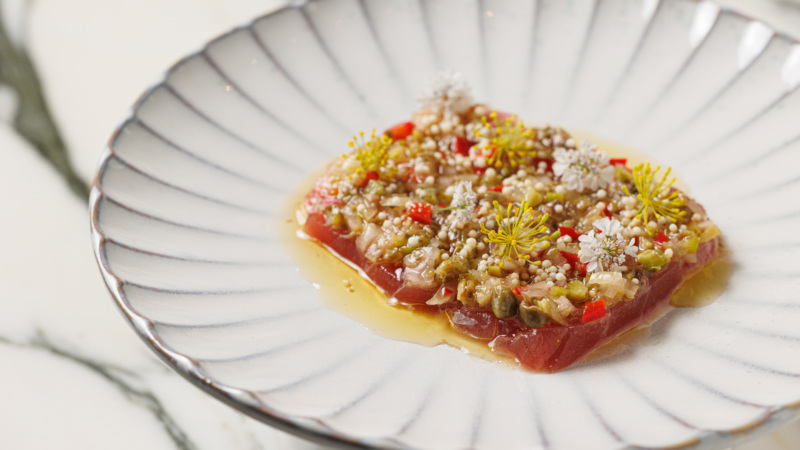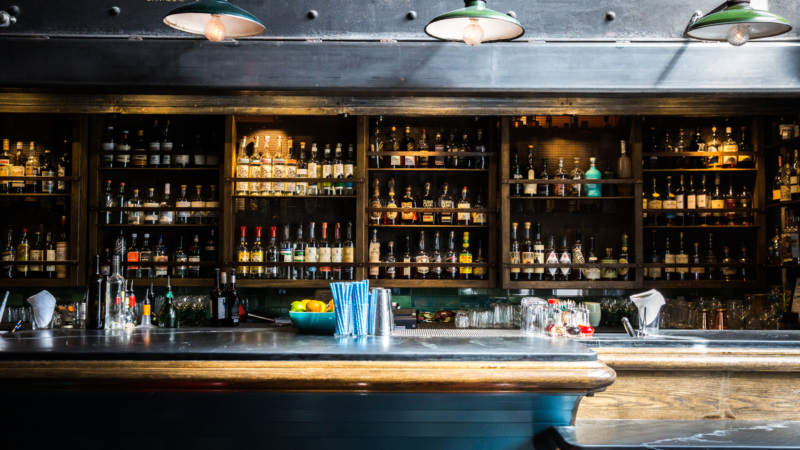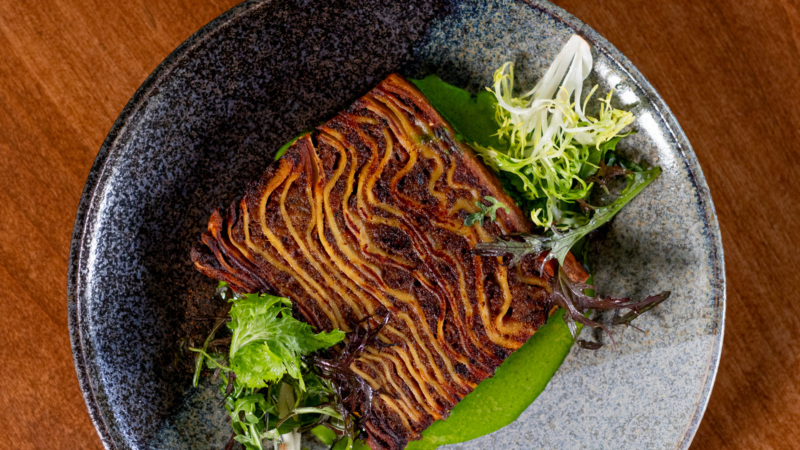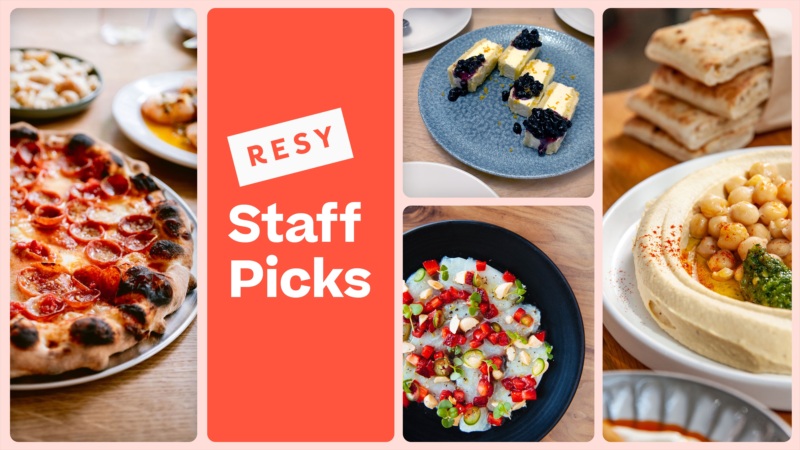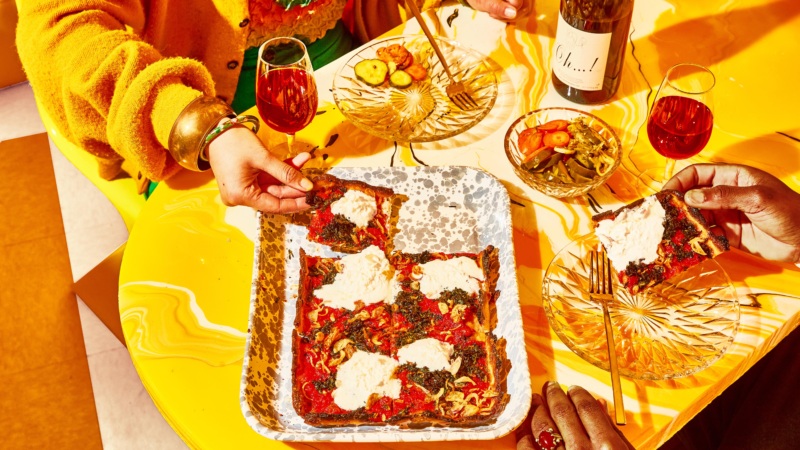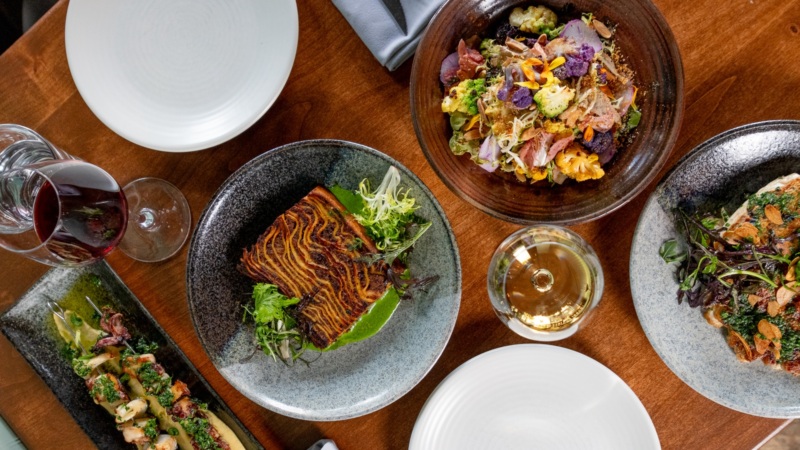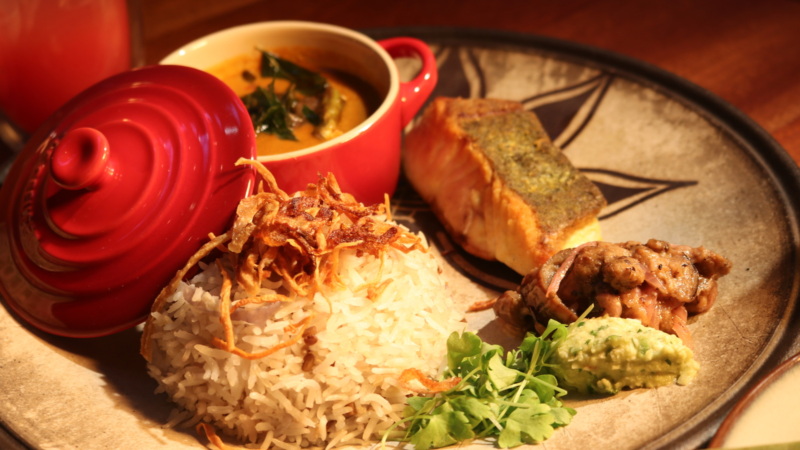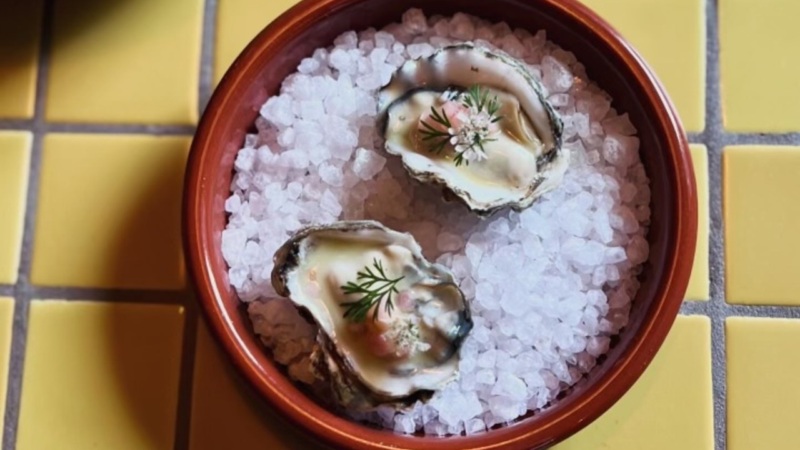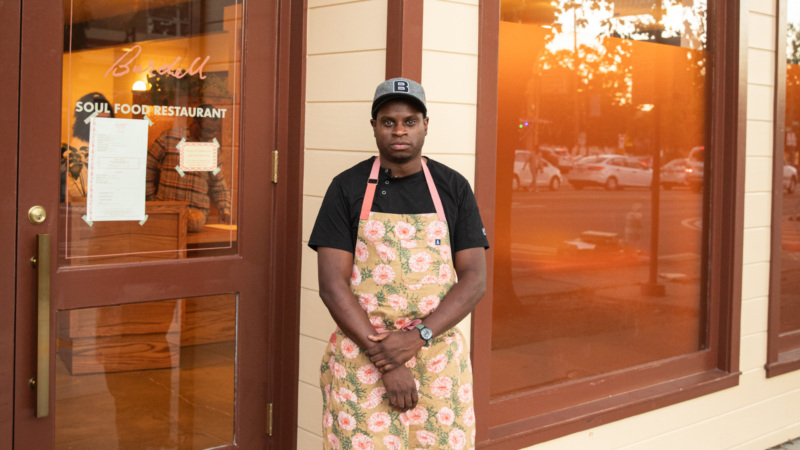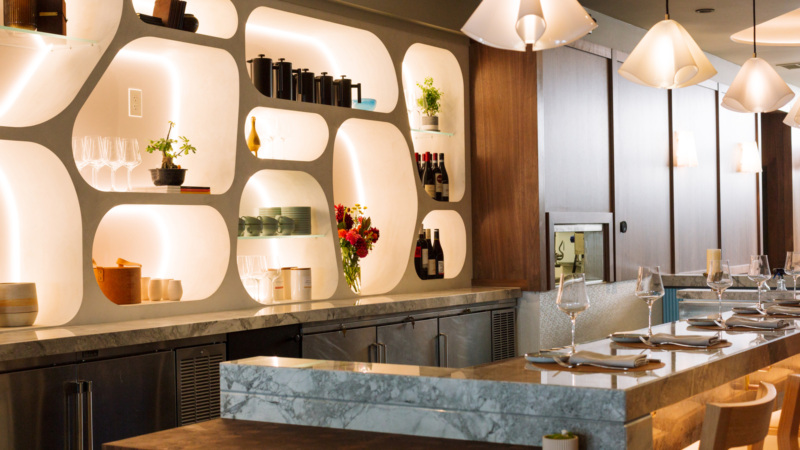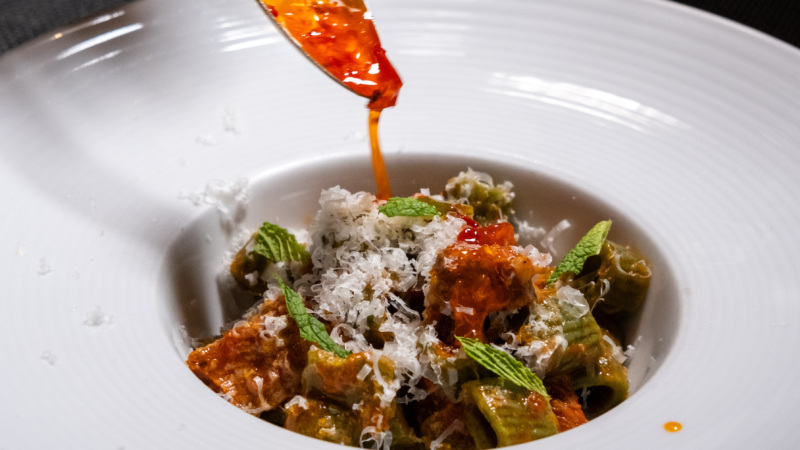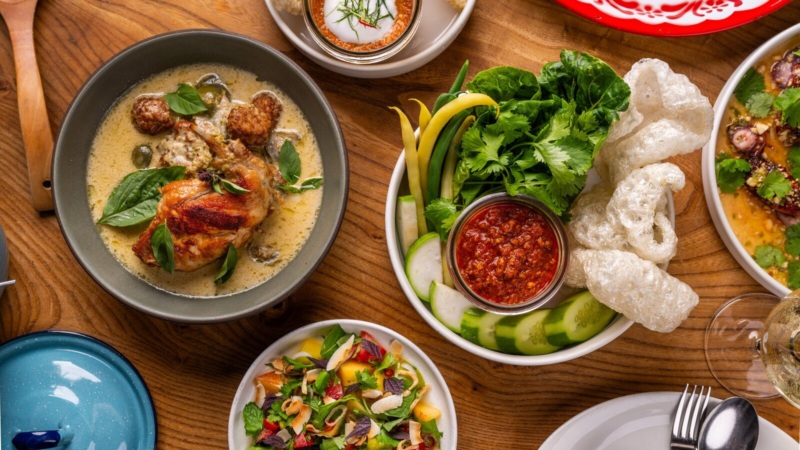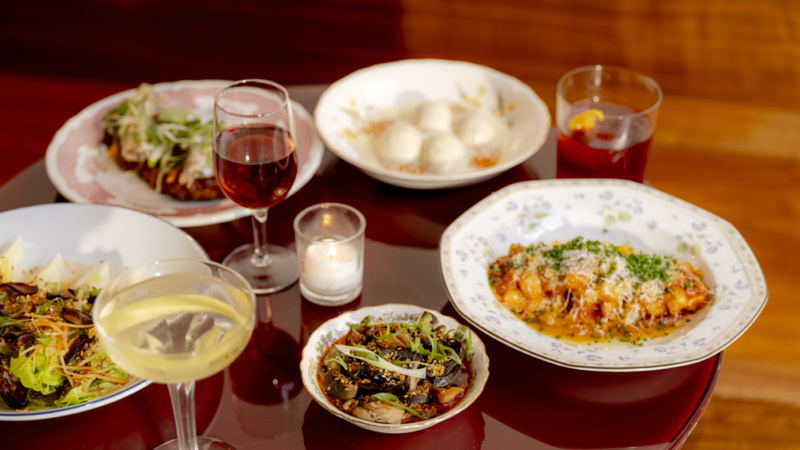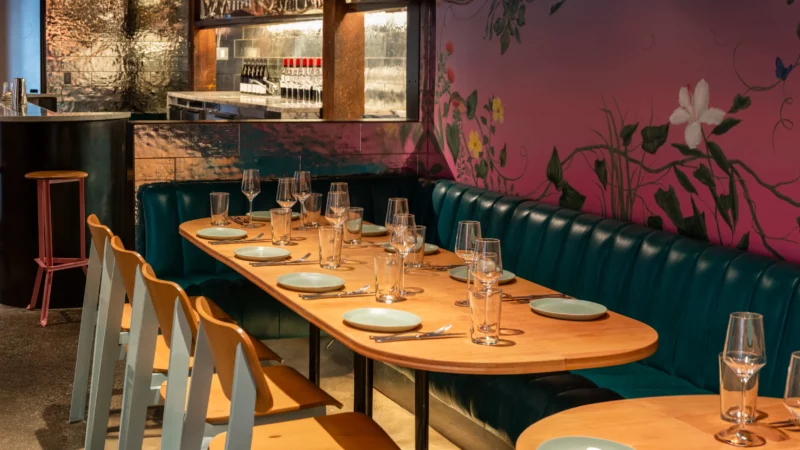
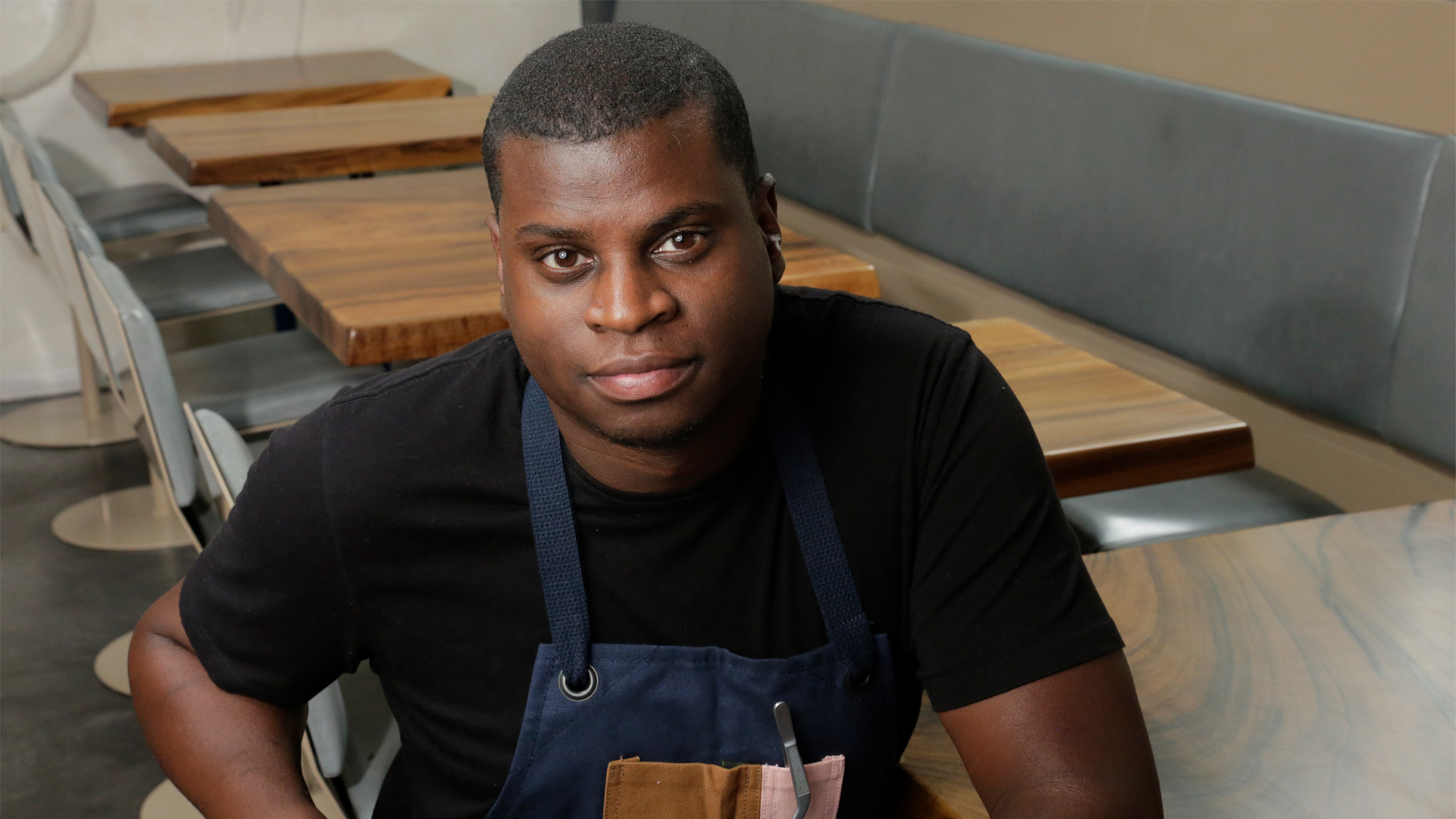
Restaurant Diaries San Francisco
On Comfort Food and Black Excellence
Geoff Davis is a chef in San Francisco. He’s planning on opening a creative wine bar, as well as a modern yet nostalgic soul food restaurant, in no particular order, in Oakland, hopefully soon. His words follow.
***
“Why do you want to want to waste your obvious ability cooking this kind of food?” A potential investor offered this question up as a sort of ill-conceived compliment at the end of the meal, just as I sat down with the group.
I had worked hard and spent a lot to pull this investor dinner together, now one of many, on a closed day at the restaurant where I was chef de cuisine at the time. At the start of the dinner, Gil Scott-Heron’s gravely voice permeated the background as I poured Champagne from Frederic Savart, a favorite of mine, for the group, excited to kick off this meal that would hopefully determine my next chapter. I pulled all of this together, obsessing over the details; obviously the cooking, but also the menu printing, playlist, wine pairings, and the vibe. All in hopes of conveying the feeling of the restaurant I’ve been dreaming of for nearly a decade.
I had made some of my favorite dishes: among them glistening and visibly crisp twice-fried, pasture-raised chicken; layered and folded buttermilk biscuits with whipped honey butter; a composed salad of Early Girl tomatoes, lemony purslane, and pole and shelling beans stitched together from my favorite local farms; rich collard greens stewed nearly an entire day with smoked ham hocks, molasses, apple cider vinegar, ginger, and berbere, that complex and haunting Ethiopian spice blend that gave a subtle nod to gomen, the famous Ethiopian dish. I spent the better part of a week preparing the dinner. But the thing I didn’t prepare for was the concept of a restaurant celebrating Black culture and food not being valued. That cooking this food is a waste of time and ability.
The recipes and methods were tweaks of family recipes, infusing our unique California bounty and ingredients with years of learned technique and craft into a personal cuisine that represents my history, my love of travel and cuisines from all over the globe. My sense of nostalgia and childhood, a link to my past and present.
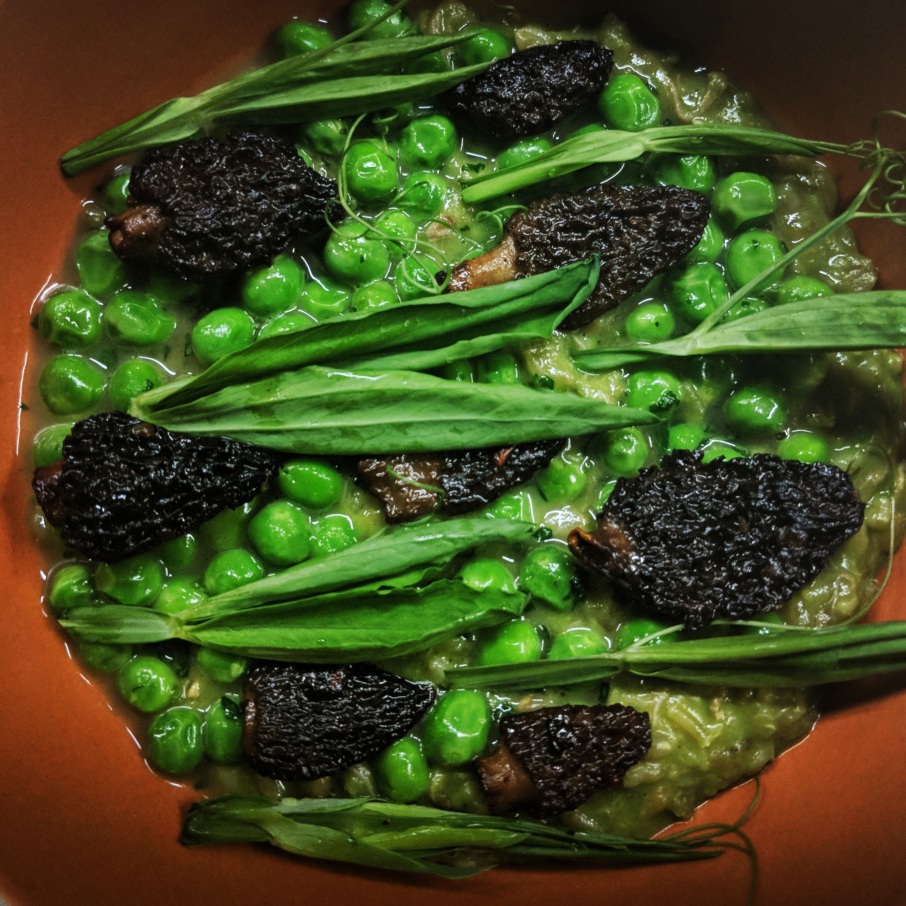
Undoubtedly, it’s an uncomfortable time for us as a country. A dialogue has begun, yet again, about the ways the police have neither protected nor served the Black community. In this moment, hopefully we are all taking stock of the ways to start to resolve systemic injustice, inequality, and racism as Americans. But from where I am sitting, this discomfort is all but temporary. This affects all parts of being a Black person in America. It’s having your culture and history looked down upon. It’s about not being wanted or celebrated.
Racism is something that is baked into American pie; it’s going to be a continued long process. Regrettably, it’s taken graphic and now-viral videos of black men, women, and children being strangled, hunted, shot, and lynched on film to arrive here, at a tipping point. Imagine and remember the killings that have happened off camera, the under-reported. I hope this cry for change is the real thing this time, because we’ve been let down by these potential moments of change and the Band-Aid fixes intended to resolve them repeatedly.
I’ve had various negative encounters with the police, especially as a teenager who grew up in a smaller city in the Central Valley of California. I have been pulled over consistently, starting the first week I started driving. I’ve had officers unholster their weapons more than once, as I, following instructions, reached into my glove box for insurance and registration. In just a moment, a traffic stop could quickly turn into your last. That pressure is exhausting. It’s been my reality. I’ve been conscious of it from the moment I started to understand, as a second grader, that I looked different than a lot of my friends and classmates. It echoes the shameful past that my grandfather’s told me about, and not much has changed.
It’s a reality I’ve come to accept and understand as a chef as well.
I was the only Black person in my culinary school class, one of maybe eight on campus, not including janitorial or landscape service workers. During most of my career working in Michelin-starred restaurants in the Bay Area, as a young cook, I was the only Black person in the kitchen. Often I was the only person of color working at the restaurant at all. Often the quality of my work was judged differently than my white coworkers.
Recently, a purveyor, with whom I’ve worked for years, came to the restaurant to have dinner on a busy Friday evening. We had only communicated via email previously about orders and invoices. He and his wife came into the kitchen smiling. I was standing at the pass, expediting. He walked into the kitchen and looked through me, and started to inquire aloud loudly over the roar of the hood and clink of spoons and pans, “Geoff? Geoff? … Chef?” Finally, after doing a quick scan of the kitchen employees, not ever looking at me, locked eyes with my sous chef, who happens to be white and working hard on a busy station, to thank him. He stopped cooking. He and I both were silent as the purveyor went on with his happy assessment of his dinner, until my sous directed his thanks to me. He simply pointed to the pass where I was standing, directly in front of him, controlling the flow of the kitchen. It was an awkward moment for him. I gave credit to the staff as he stumbled to recover. But it was not unfamiliar for me. So many times have I been asked to go get the chef or “tell chef I stopped by.” I’ve had a potential cook turn around and walk out of an interview appointment upon realizing that I, the Black guy, was the chef.
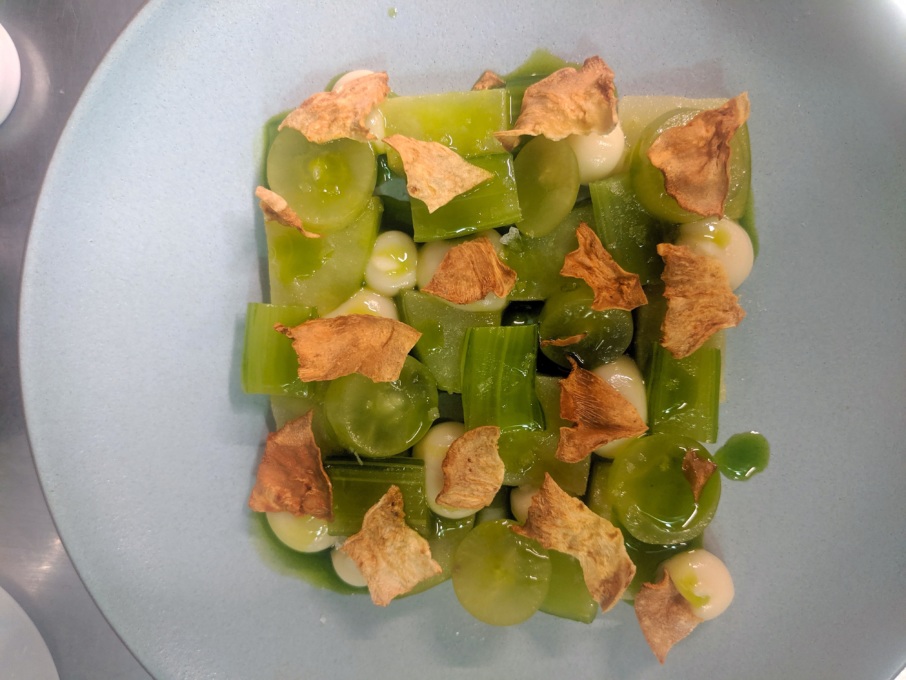
I often think back to another moment, when I was a young cook making a pot of gumbo for family meal. The chef, with one swipe of the back of her knife, cleaned her cutting board of irregularly cut and punched-out and unpeeled turnips and rutabagas into my almost-complete gumbo, blurring the long planned and now four-hour simmered project just a few minutes before family meal time. I expressed my displeasure with using my project as a compost bin, which was met with an over-the-top eye roll and a sarcastic “Oh, did I ruin your grandmother’s recipe?” as she walked away. The feeling of unimportance was hard to shake.
Soul food, Southern food, Black food has roots in Africa and of course the slave trade. It’s a painful spiderweb of a stolen people and culture.
I think as chefs, we all come to a moment of wanting to honor our family traditions and tap into these memories and share them. You can see it in more restaurants honoring traditions of immigrant chefs, telling the story of their parents and grandparents before they are lost. A lot of these chefs, finally, are people of different backgrounds, women, some from war-torn places. Their cultures are getting honored and celebrated, which is a huge triumph. I just hope that Black American food is next.
For me it’s as simple as remembering cooking with my now-gone grandfather; my Pop-pop, his yearly excitement for summer tomatoes and cantaloupe, sitting at his table eating Shake N Bake pork chops; or the taste of my Grandma’s grits and sausage, and imperfect and peppery scrambled-in-the-pan cheesy eggs in the morning; my Mom’s sweet potato bake with roasted banana, topped with candied pecans on Thanksgiving. We all have it one way or another.
Food and family are linked. Food is tied to family memories and that gives us comfort.
I can say now that I’m proud to cook my family’s recipes. I’m even more excited about the idea of sharing it with people. But it wasn’t always that easy. There was a fear of the stigma of a cartoon Black person eating fried chicken and watermelon, being typecast or pigeonholed as “that guy” — rather than a talented chef cooking from my childhood memories. If I grew up in France, maybe my outlook would be different.
I didn’t always feel comfortable cooking from my memories. Often, I was embarrassed by it. Black food doesn’t have the same respect or need for seriousness and professionalism as foods from other cultures. Eurocentricity drives dining in this country. A nice dinner out in the Bay Area usually includes high-handed French technique or rustic Italian sensibilities. These are the kind of restaurants I’ve worked in for over 15 years.
Do I just give up and cook ‘Californian’ cuisine? Do I shift the focus away from the Blackness of my cooking? Can our homegrown food be just as important as the imported flavors and technique from Japan? Italy? France? Can Black food be served in a fully-funded, beautiful restaurant space, with great service and with great ingredients and beverages? Will it be celebrated nationally? What compromises will it take to achieve this?
I don’t have the answers, yet. But I believe that true freedom exists in ownership.
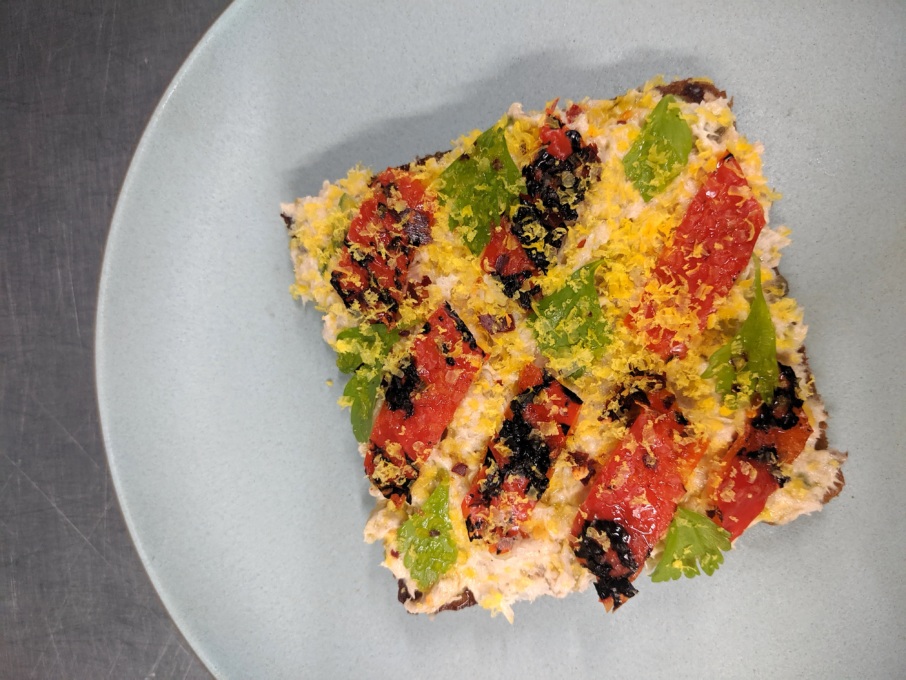
Fried chicken eaten out of a paper bag is most people’s experience of Black food. The famous national brands of what we identify as American Southern food — and therefore Black food — don’t tell the story accurately. KFC with a white mascot, based on a real person who appropriated, systemized, and monetized slave-cooked food without giving credit to the people who created it. Popeyes with its sassy Black “Annie,” an updated mammy character, disingenuously playing the role of the owner, cook, and CEO in commercials. Her character fueled last summer’s frenzy around a fried chicken sandwich that doesn’t actually represent with dignity and above all else, feigns ownership above the franchisee level. The actual owners of Popeyes don’t look like “Annie.” The parent company isn’t even based in the United States.
Ownership of our food, our businesses, our neighborhoods and the money cycled through restaurants not leaving the communities they are supposed to serve, are, in my opinion, the only paths forward for us as a people. Lack of ownership and lack of access to capital prevent Black Americans from playing in the same field of dreams as other groups. A step to solving systemic racism and oppression is leveling the playing field with opportunity. Capitalism requires us to seek financial equality.
Now, I need to find people willing to invest in my vision, or loan money to my vision. I need to find people who value the importance, history, and hopeful future of Black Food. Increased traffic and support of Black-owned restaurants are a good start, but we need more. Black Lives Matter — and part of that is understanding the value of Black food and Black food businesses. It has no less value than other cuisines. Being open to valuing a people’s food is a sizable part of understanding any culture. Black Food Matters.
Often these days, I am stress-eating my way through this pandemic. In this moment of hopeful change for this country, you can find me finding solace in my favorite buttermilk-brined nostalgia, smiling and staring off, day-dreaming of a restaurant that I can call my own.
I imagine a restaurant where I can honor my family’s recipes and traditions, while nourishing people not only with food but with comfort and belonging. A beautiful place where everyone is welcome, guests and employees alike. I imagine an intimate but busy restaurant in Oakland with a diverse mix of people milling about, enjoying the scene and selecting from the menu and wine list. Late afternoon light pours through the windows, illuminating art and giving shape to dramatic unfinished wood and cork details throughout the space. Pops of color become evident. I imagine my parents and my grandparents sitting at the table, enjoying a piece of our history as told through soulful cooking, music, and art.
Celebrating Black Excellence has to be the goal in our path forward.
Geoff Davis is the executive chef of Penny Roma in San Francisco. He’s planning on opening a creative wine bar, as well as a modern yet nostalgic soul food restaurant, in no particular order in Oakland, hopefully soon. Follow him on Instagram at @geonate88.
Discover More


